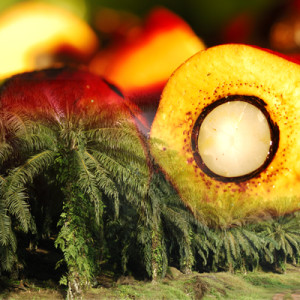No Palm Oil labels in Belgium – A turning point in the debate
The EU Food Information for Consumers (FIC) Regulation, which came into effect on Dec 13, 2014, has transformed the debate on the ‘No Palm Oil’ label. The FIC Regulation has confirmed beyond doubt that use of the label is unlawful. It is now being denounced in some quarters.
The first encouraging sign has come from Belgium. In a recent reply to a parliamentary question, Economy and Foreign Trade Minister Kris Peeters acknowledged the FIC Regulation’s effect on the label.
“Under the former regulation, all products containing natural oils could just display natural oils in the list of ingredients. Now this needs to be followed with the exact kind of natural oils that are used in the product. In this way, the consumer can see for himself if palm oil has been used in the production process of the product,” he reportedly said.
Since the ‘No Palm Oil’ label is superfluous, Minister Peeters has promised to initiate discussion with Belgian manufacturers on reviewing its use. This is a major shift in the Belgian government’s position and a sign of hope for millions of people in Asia and Africa whose livelihood depends on the palm oil sector.
It is also an important step towards dismantling an unfair labelling practice that has been tolerated in Belgium and France – the only countries in Europe where it is being applied – for far too long.
Following the entry into force of the FIC Regulation, manufacturers are obliged to specify the type of vegetable oil used in their food products, including palm oil. As such, it is absolute nonsense to specify its absence. Additional labelling is not needed. It would only mislead and misinform European consumers.
Malaysian palm oil is comfortable with the FIC Regulation’s provisions on labelling vegetable oils. These specify that the oil of origin (for example, palm oil or sunflower oil) must be specified in the list of ingredients. This is non-discriminatory and applies to all oils.
The ‘No Palm Oil’ label is different, having arisen from a marketing campaign by certain companies to deliberately single out and disparage palm oil. The Malaysian palm oil industry is transparent and responsible in its practices and communications, unlike food producers like Delhaize, Galler Casino and Système U.
By retaining the ‘No Palm Oil’ label, these food producers have revealed their true purpose – and it has nothing to do with claims of transparency or consumer awareness, which the FIC Regulation adequately protects.
Like the Belgian government, the French public authorities are changing their stance as well. The French Directorate against Fraud (DGCCRF) has stated that the ‘No Palm Oil’ label “could be considered illicit in some cases or in breach of regulations in others”.
Enforce the law
Use of the label also violates French and Belgian laws, as highlighted in an analysis by international law firm Hogan Lovells. Additionally, the companies are in breach of laws on unfair competition, health claims and advertising. Yet, they have not removed the anti-palm oil label from their products.
We expect both governments to enforce the law with the support of the AFSCA in Belgium and DGCCRF in France, and ban the ‘No Palm Oil’ label. The EU too has a key role to play. DG SANTE, which oversees EU food labelling regulations, should ensure correct application of the FIC Regulation and eliminate the use of discriminatory labels.
The absence of enforcement to date is a source of great frustration and anxiety to the Malaysian palm oil community. It sees no merit in the negative campaign against a beneficial product from the most efficient of oilseed crops.
Furthermore, investment in oil palm cultivation has contributed towards land and rural development over decades, as well as alleviation of poverty among small farmers who now contribute almost 40% of the palm oil produced by Malaysia.
Much is at stake and palm oil producers can no longer afford the luxury of waiting for action. If Europe continues to close an eye to a practice that is unlawful by its own standards, Malaysia stands ready to up the ante.
If the ‘No Palm Oil’ label is not removed promptly, there will be serious implications for bilateral trade – a point that was unequivocally conveyed to Belgian companies on a trade mission to Malaysia.
Dr Yusof Basiron










Leave a Reply